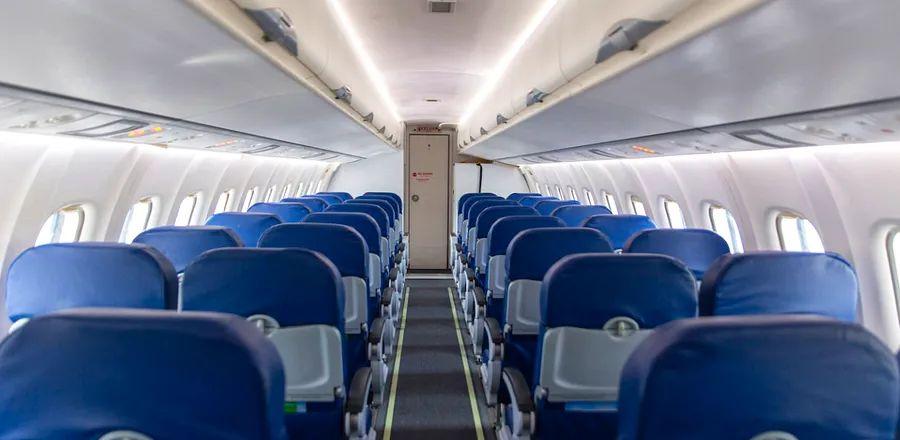Why European Airlines Are Operating Flights with Few Passengers

The skies over Europe are increasingly filled with nearly-empty planes, primarily to protect airlines’ essential time slots at some of the globe’s busiest airports.
The spread of the highly contagious Omicron variant of COVID-19 has deterred many from traveling, resulting in countless flights where transporting people and goods has taken a back seat. This situation has fostered an unusual alliance between environmental advocates and major airlines, both urging the European Union—committed to leading global climate action—to revise airport slot regulations.
“The EU must be operating in climate emergency mode,” activist Greta Thunberg tweeted this week, sharing a story about Brussels Airlines’ unnecessary flights.
“Brussels Airlines conducts 3,000 unnecessary flights to keep their airport slots. The EU must be in a climate emergency mode… https://t.co/eHLFrd06y0 — Greta Thunberg (@GretaThunberg) January 5, 2022
The company has warned that without EU intervention, it will need to operate around 3,000 flights this winter mainly to protect its network rights.
German airline Lufthansa stated it would need to conduct an extra 18,000 “unnecessary” flights this winter to maintain its landing slots. Even with a surge in holiday travelers (evidenced by numerous flight cancellations leaving passengers stranded), the remainder of the winter may be sluggish as Omicron cases rise globally.
Landing and takeoff slots for sought-after routes at major airports are a highly valuable asset in the aviation industry, and airlines must ensure a high percentage of flights to retain them. This necessity leads to maintaining loss-making flights to secure their slots.
While this practice was previously accepted despite environmental concerns, the sharp decline in flying during the pandemic has challenged its validity. Airlines were typically required to utilize 80 percent of their allocated slots to keep their rights, but the EU has reduced this requirement to 50 percent to minimize the number of empty or nearly empty flights in the skies.
In the U.S., the Federal Aviation Administration (FAA) has suspended similar minimum slot-use regulations until March 26, citing the pandemic's impact. Limited slots exist at only a few U.S. airports, including John F. Kennedy International and LaGuardia in New York, as well as Reagan Washington National near D.C.
Just last month, when there were still lingering hopes that the pandemic might finally subside, the European Commission affirmed the 50 percent rule but indicated it would rise to 64 percent by the end of March.
However, major airlines such as Lufthansa, Air France, and KLM are seeking additional flexibility, including a potential reduction of the threshold for time slots.
“As an airline, you might face the dilemma of losing slots due to flight cancellations or operating with half-full planes. Neither scenario is ideal,” stated Dutch airline KLM.
This situation creates a dilemma for the EU. On one side, it must ensure airport slots are available for fair competition, allowing new entrants to compete if slots are underutilized; on the other side, it aims to minimize the operations of polluting flights.
Last month, EU Transport Commissioner Adina Valean acknowledged the impact of Omicron on the travel sector, but as of Thursday, she had not introduced any new regulations.
Belgian Transport Minister Georges Gilkinet sent her a sharp letter and has been urging his EU colleagues to support the initiative and amplify the pressure.
“The significant pollution generated by these flights is in direct conflict with the EU’s climate goals,” the letter obtained by the Associated Press stated.
Evaluation :
5/5



